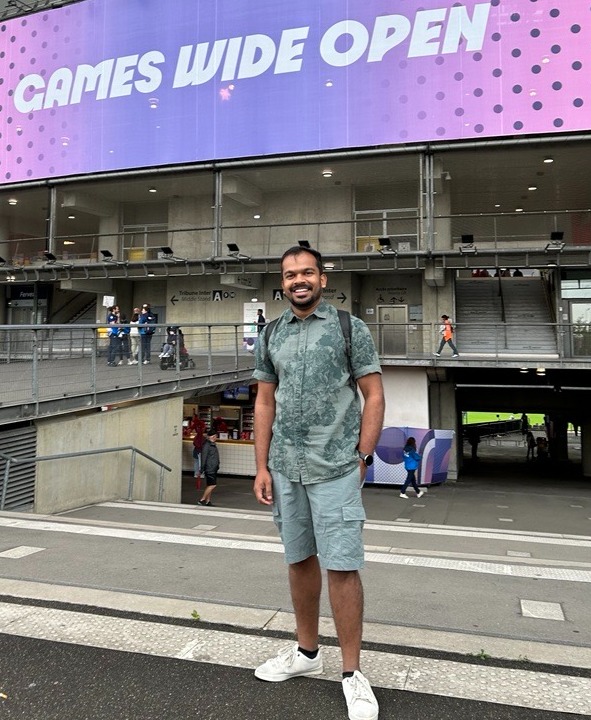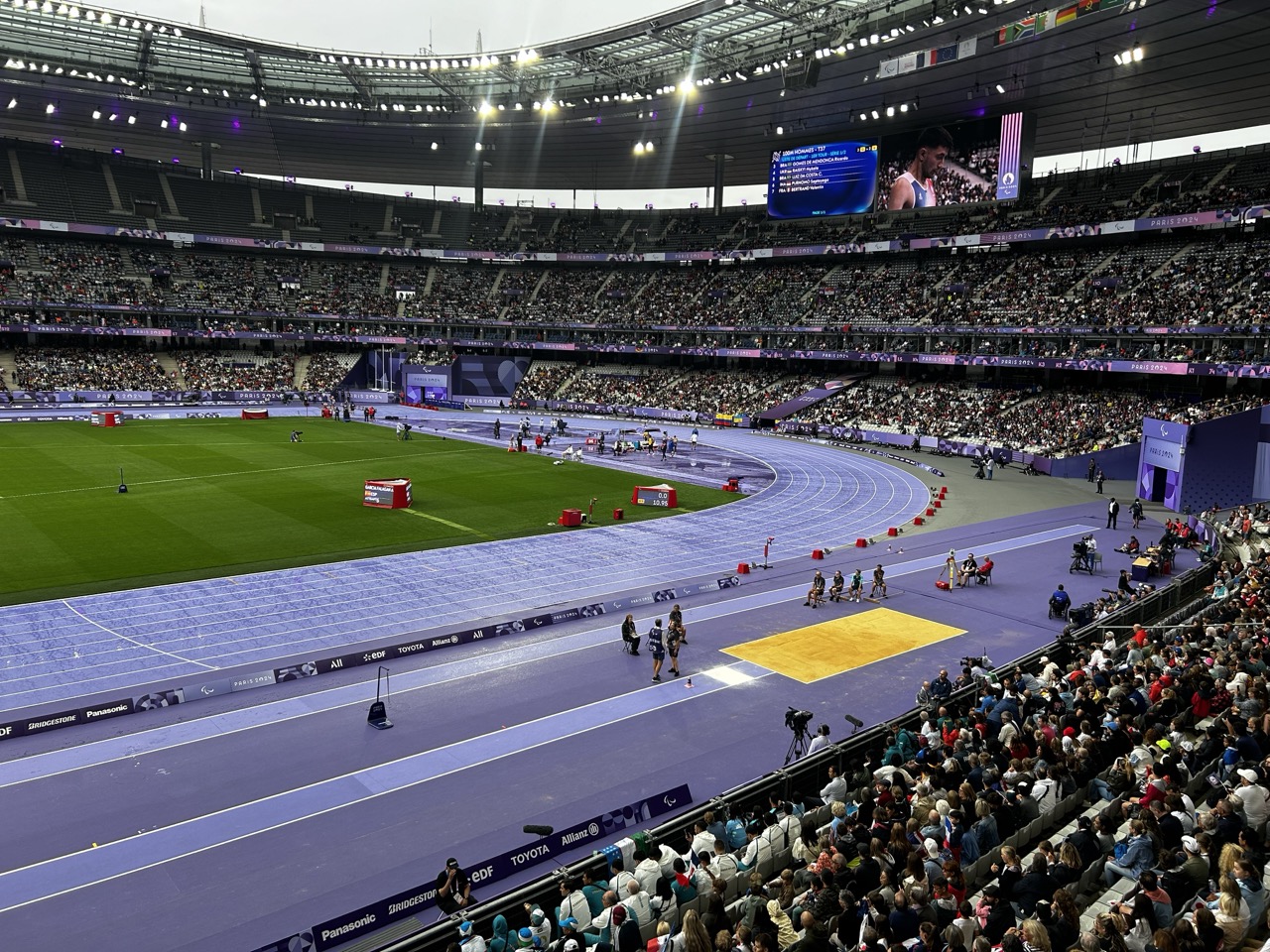Paris 2024 to Baku COP29: Sports, Disability Inclusion, and Climate Action
Blog by Bala Nagendran M, Inclusive Climate Researcher, GDI Hub

In August 2024, a month after I joined the Global Disability Innovation Hub (GDI Hub) as an Inclusive Climate Researcher, I had the opportunity to travel to Paris and experience Paralympics with the GDI Hub team. I must admit, I am not a sports fanatic. In fact, this was my first time watching a sporting event in a stadium. I loved it; however, my core memory of Paris is climate-centric, of the 2015 Paris Agreement. From the discussions around this year’s becoming the ‘greenest ever games’ to the extreme heat dome hitting Western Europe, Paris 2024 made headlines for many things ‘climate.’ This blog extends this climate narrative and highlights the power of sports to consolidate voices and accelerate inclusive climate action, as we anticipate higher ambitions and bolder commitments from the 29th United Nations Climate Change Conference (COP 29).
Context
Following the Tokyo 2020, more than fifty leading Olympians and Paralympians from across the globe released a video titled ‘Dear Leaders of the World,’ calling the world leaders to set and deliver ambitious climate goals at the Glasgow COP-26. The video framed “the Conference of the Parties (COP) as the Olympic of Climate Summits to show real ambition and courage” and “Climate Action as a race which we need to win for a healthy, safe earth for all.” Similarly, Paris 2024 brought to light how climate change impacts sports and how sporting events could complement the global climate action agenda.
Climate Change and Sports
Heat, humidity, and extreme weather conditions directly affect the health and performance of athletes. Since Paris last hosted the games in 1924, its average summer temperatures have risen by 3.1°C. Further, a heatwave hit Southern France with temperatures peaking at 40°C and reached Paris on July 30, where it exceeded 36°C, forcing athletes to compete under scorching conditions. During the Olympics, an extreme weather protocol was activated for tennis games, offering players the opportunity to get a 10-minute break, and Olympic Village was fitted with over 2,500 temporary cooling units.
While such extreme heat affects everyone, para-athletes with conditions including amputations, spinal cord injuries, multiple sclerosis, or cerebral palsy can be particularly vulnerable, as they commonly experience reduced ability to sweat, leading to an increase in core temperature. For example, Andy Blow, a former elite athlete, highlighted how amputees have a smaller surface area to dissipate heat, and sweat buildup in their prosthetic sockets can cause blisters, skin issues, and discomfort. Recognising the potential risks of suffering from heat during Paris 2024, the International Olympic Committee’s Medical and Scientific Department issued a guidance document titled “Beat the Heat,” encouraging athletes and para-athletes to train for heat acclimatisation.

Paralympics and Global Climate Action
Paris 2024, being the first international sporting event aimed at reducing its carbon footprint by half compared to the average of London 2012 and Rio 2016 and by withstanding extreme heat stress, has spotlighted the urgency for climate action. With global temperate on track for 2024 to be the warmest year on record, Paris 2024 or any event that grabs global attention is an opportunity to consolidate voices, nurture cooperation, and strengthen the climate movement. Para sports, in particular, displaying the values of courage, determination, and equality is an avenue to amplify the impact of climate change on people with disabilities and send a reminder for the need for inclusive climate action—by collaborating with the most vulnerable, including the people with disabilities, for reducing the effects of climate change on them, and ensuring the benefits and burdens of climate action are equitably distributed.
With world leaders convened in Baku, I hope to see COP29 carry the spirit of Paris 2024 to further the commitments of the 2015 Paris Agreement and implement the mandates of the 2006 United Nations Convention on the Rights of Persons with Disabilities (UNCRPD).